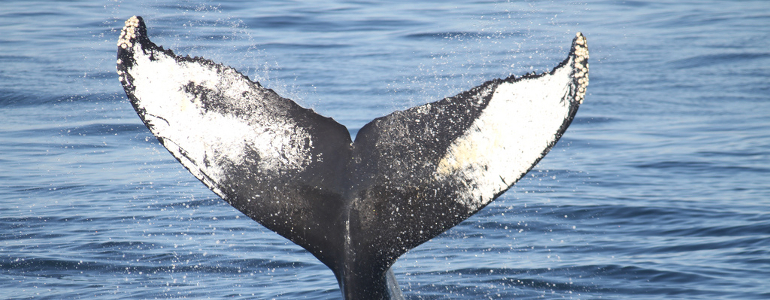
Whales are one the most fascinating and intelligent creatures we know and we certainly want to protect these biggest fishes, or actually mamals, in the sea. But luckily whales are not helpless against the latest ecological changes. A new study found they work together in adapting to their environments, just like us.
For a period of 27 years a team of researchers monitored the fishing habits of a community of American humpback whales. The dimishing of their usual prey in the 1980′s led some of the whales to invent a new hunting technique: first hitting their tail on the water before diving down.
But it weren’t just these few smart ones that benefited from their own innovation. The whales were intelligent enough to also pass it on to the others. In 2007 around 40 percent of the population was using the new fishing skill.
Didn’t all these whales just discover the tail-on-the-water-thing themselves? No, say the researchers. Their analysis revealed that the new behavior spreaded roughly along the lines of social networks. Yes, whales have them too, apparently.
So culture is not something uniquely human. These marine animals, very distinct from our own primate lineage, also are able to transmit knowledge and keep traditions. It’s actually not so surprising if you know that whales also teach each other their mysterious songs. Maybe many years from now we find out that all this time they have been singing about fishing techniques.
Photo: cc
Source: Science Daily Allen, J., Weinrich, M., Hoppitt, W., & Rendell, L. (2013). Network-Based Diffusion Analysis Reveals Cultural Transmission of Lobtail Feeding in Humpback Whales Science, 340 (6131), 485-488 DOI: 10.1126/science.1231976
Gepubliceerd op United Academics